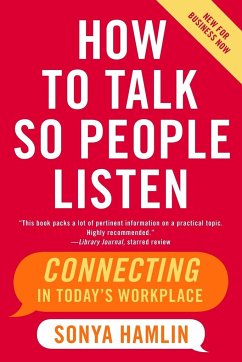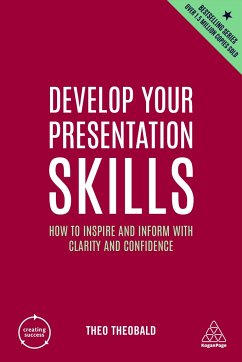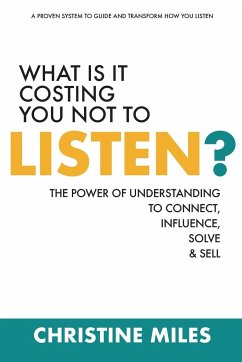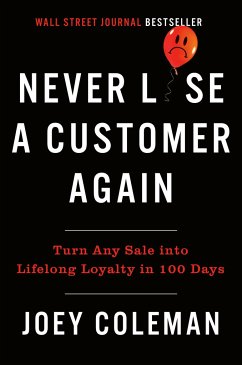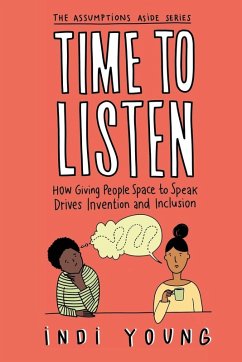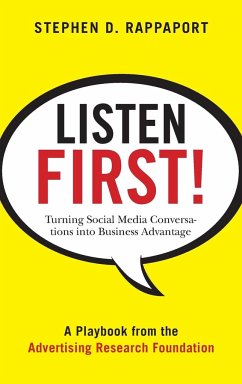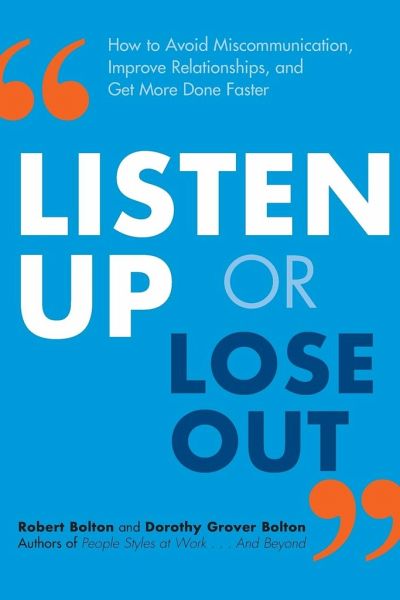
The Listen Up or Lose Out
How to Avoid Miscommunication, Improve Relationships, and Get More Done Faster
Versandkostenfrei!
Versandfertig in 1-2 Wochen
19,99 €
inkl. MwSt.

PAYBACK Punkte
10 °P sammeln!
Learning how to actively listen and absorb what a person is saying, thinking, and feeling can set the stage for dramatically improved relationships and increased personal success. Most people retain only a fraction of what they hear, resulting in miscommunications and lost opportunities. In Listen Up or Lose Out, communications expert Robert Bolton highlights the underestimated and under-utilized tool of active listening and explains how it can be used to gather perspectives, bridge differences, and resolve problems. Bolton teaches you key communication skills by: breaking down listening into ...
Learning how to actively listen and absorb what a person is saying, thinking, and feeling can set the stage for dramatically improved relationships and increased personal success. Most people retain only a fraction of what they hear, resulting in miscommunications and lost opportunities. In Listen Up or Lose Out, communications expert Robert Bolton highlights the underestimated and under-utilized tool of active listening and explains how it can be used to gather perspectives, bridge differences, and resolve problems. Bolton teaches you key communication skills by: breaking down listening into a set of learnable skills such as avoiding the urge to criticize, question, or advise; focusing on the speaker's point of view; asking the right questions, in the right order; and learning how to read people's feelings and reflect them back Listen Up or Lose Out explains how one can become a skilled listener who experiences fewer conflicts, makes better decisions, and discovers opportunities that others might miss. Whether personally or in business, could you benefit from better communication? Give listening a try!





